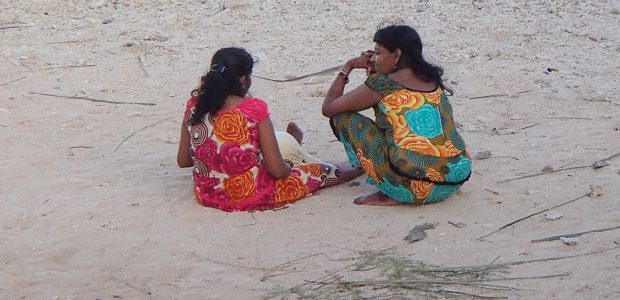More Important Than Money:
What Sri Lanka’s Widows Really Need
Sri Lanka’s estimated 80,000 Tamil widows can claim financial assistance from the government. However what they really need is social and psychological support, say local doctors.
Puvana is angry. “My husband was killed in the war. I have three children. I have financial problems. And it’s not only that, I also worry about sexual harassment. I lose my patience just thinking about all this, it makes me wild,” the Sri Lankan woman says.
Puvana is not the only widow who is finding it hard to cope. An estimated 80,000 widows live in Sri Lanka, many of them in the traditionally Tamil north of the country and most of them Tamil.
In general Tamil society is not open about sex and it considers remarriage unsavoury. Men tend to be the breadwinners in Tamil society but the aforementioned attitude means that widows are trapped in an untenable situation. Going out to work makes them “bad mothers” but they won’t remarry because they fear social approbation. They worry that if they remarry, their neighbours will think they did for sex. In fact, there are also local men who prey on the widows.
“There are notions that a woman must depend on a man for fulfilment,” says Velayuthapillai Jegaruby, a psychiatrist at Kilinochchi General Hospital, in northern Sri Lanka. “Yet when the women living alone go out to work, society accuses them of being bad mothers. A widow must always protect herself, both physically and psychologically.”
The impact of the male casualties in northern Sri Lanka after the civil war has been high, Jegaruby says. “Doctors have seen that most of the women left behind have been subjected to a lot pressure,” Jegaruby notes.
“Our society is not one that supports widows,” agrees Sutharsan Subramanian, another local psychiatrist. “Widows are given economic aid but there is no long term planning, so that a widow can develop her own livelihood. And nobody thinks about her psychological needs.”
Sri Lanka’s widows can apply for various kinds of funding from the government, including easy loans for self-employment and more generalised social welfare payments. But as Subramanian argues, the widows need more than this. Every person who can help the widows should do so, he suggests, because if the widows become socially isolated, they will continue to fall victim to sexual harassment and psychological issues.
Subramanian also believes that remarriage should be encouraged. “Sexual awareness is essential,” he suggests, “Tamil society should support remarriage, but in a respectable way.”










